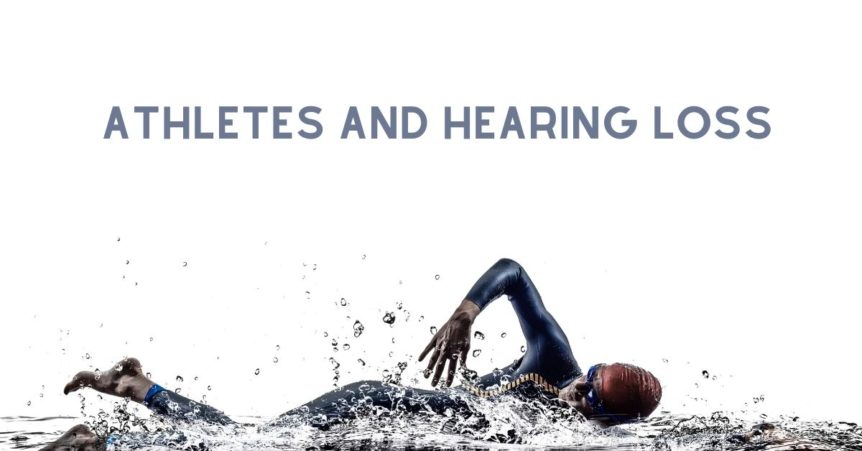We know that hearing loss can be caused by aging, noise, illness, or even genes. Did you know that playing sports can also damage your hearing? Athletes around the world suffer from hearing loss, and many live with daily tinnitus. This is often from exposure to loud noise on game day, or from a head or neck injury suffered while on the field. Students who play on a school team, and people who play sports as a hobby, could also suffer a hearing loss. Even sports fans are risking their hearing health, and are at higher risk of developing tinnitus or hearing loss.
Risking Hearing Loss from Injury
Frequent injury on the field puts athletes at a high risk for suffering a hearing loss caused by head or neck trauma. When athletes play to win, they often suffer injuries, and many athletes such as football players have suffered at least one concussion during their career. Concussions can damage the inner ear, destroying the delicate cells in the ear and leading to hearing loss. The middle ear can also be injured, and some head injuries result in a blockage of the ear canal or the middle ear. Concussions can also cause tinnitus, that ringing or buzzing sound that only the person with tinnitus can hear.
Risking Hearing Loss from Noise
Nothing beats the rush of being at a live football or baseball game and sharing the stands with thousands of screaming fans. You stomp and yell and clap, and the din can become deafening. While this is exhilarating, all the noise can damage your hearing, and the hearing of your favorite athletes on the field. Just like fans, athletes are caught up in the excitement of the game and focus on playing their best. They don’t realize that their hearing is at risk. In a packed stadium, the roar of the crowd can be deafening, and athletes are exposed to dangerously loud noise levels during every game.
The damage may not be noticeable right away, but repeated exposure to all that noise will start to chip away at hearing health. Soon you may not hear high pitched sounds, the stove alarm clock, or the clicking sound of the indicator light when you’re driving. You’ll also have a difficult time following conversation, and you may mishear what’s being said.
The Importance of Hearing
Not only is hearing clearly vital to maintaining clear communication with loved ones and having a great quality of life, it’s also very important for athletes’ ability to play the game. Athletes rely on their sense of hearing to understand instructions from coaches, and communicate with teammates. Hearing is also important for localizing sounds on the field to keep track of where teammates and opponents are positioned. Clear hearing is vital for athletes to play a great game.
Protecting Your Hearing
For both athletes and fans, it’s important to protect your hearing health! Have you ever left a sports game with a ringing feeling in your ears, or noticed that the sounds around you seemed faint or muffled? This temporary hearing loss usually fades in a few hours, but it’s a clear sign that you’re damaging your hearing, and need to wear hearing protection when at a sports stadium. From foam or wax earplugs to earmuffs or digital hearing protection, you have many options when it comes to keeping your ears safe and protecting your hearing.
Wearing hearing protection that reduces sounds by 20 decibels or more will keep your hearing safe, but still allow you to hear everything that’s going on around you. A good rule of thumb is to protect your hearing whenever it’s so loud you have to shout to have a conversation with your friend.
Hearing Screening
Another important part of protecting your hearing health is to have regular hearing screenings. Athletes who receive regular screenings can measure their baseline hearing levels and monitor their hearing health. They’ll be able to treat their hearing loss as soon as possible, and protect against further loss of hearing. Sports fans should also have a hearing screening every few years to monitor hearing abilities, and get a hearing test if you notice any changes in your hearing health.

